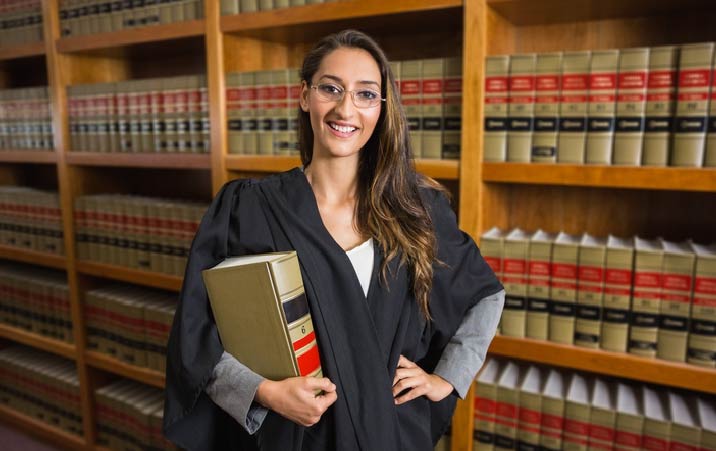The surge in law school applications this year has not abated.
The number of applicants to American Bar Association-accredited law schools is up 20% compared to a year ago—the same increase the Law School Admission Council reported in early March. The fact that people continue to apply in large numbers even as the admissions cycle winds down throws cold water on the theory that prospective law students were simply applying earlier than normal because the COVID-19 pandemic left them with more time on their hands.
Also Read: IIT Kharagpur law students will now draft real-time patents for innovations from the institute
In fact, data from the Council show that the number of people who have applied to ABA law schools for this fall has already surpassed the total number of applicants from 2020 with weeks still to go. Thus far, 63,733 people have applied for fall 2021 admission. That’s more than the 63,384 total who applied the last cycle. Put another way, the national law school applicant pool already has 10,723 more people than it did at this time last year. If that trend holds steady in the final weeks of the cycle, law schools will end the year with approximately 76,000 applicants. That would be the single-largest applicant pool since 2011, which represented the beginning of a sustained downturn in law school applicants.
Meanwhile, this year’s applicant pool has proven to be unusually strong. The number of people who have applied thus far with LSAT scores falling in the top range of 175-180 is double what it was at this time last year.
Admissions officials and consultants have attributed this year’s applicant spike to a number of factors. Current events, such as the Trump presidency, police killings of Black people, and national outcry over racial inequality, are prompting more people to consider legal careers as a way to push for change. Some college graduates are also looking to law school as a way to wait out an entry-level job market that has been hit hard by the pandemic. Finally, the introduction last year of the LSAT-Flex, which is a shorter, online version of the traditional LSAT, has made the application process more convenient for many.
Also Read: Over 1500 students enrol in Jindal law school
A Council spokeswoman noted Monday that this year’s applicant increase cuts across all racial groups. Black applicants are up nearly 23% compared to this time last year, and Hispanic applicants are up nearly 21%. The number of Puerto Rican applicants has increased an eye-popping 59%.
“We are seeing strength across all demographic groups and locations,” said the Council in a prepared statement. “This year looks good in terms of having a robust and diverse legal education pipeline of candidates eager to use the law to create a better world. That’s good for our society.”
But the Council warned that a decline in undergraduate applications this year—particularly among minority students—means that legal education will need to step up its outreach and recruiting efforts in the coming years to ensure law schools will continue to see diverse applicant pools.
This year’s applicant pool also remains notably strong. Each LSAT score band of 160 or above has seen an increase of 27% or more in applicants. The two highest score bands of 170-174 and 175-180 saw increases of 54% and 100%, respectively.
The combination of more applicants and an influx of candidates with high LSAT scores and undergraduate grades has thrown something of a curveball at law school admissions offices, which haven’t been able to rely too heavily on their historical admissions models to determine how many people to admit, and how many of those admits are likely to enrol.
The University of Notre Dame Law School received criticism from applicants this month for closing its seat deposit period ahead of the stated April 15 deadline when spots filled quicker than anticipated. The school had warned admitted students that they had until April 15 or whenever the fall class filled up to send in their $600 deposits. When spots went faster than expected, the school alerted admitted students and closed the deposit period on April 6, after a daylong flurry of activity and emails warning applicants to send their deposits in right away or risk being shut out.
While many condemned that approach, saying it placed undue pressure on admitted students to make quick decisions, Notre Dame Law Dean Marcus Cole told the Indiana Lawyer that the process was fair, that all admitted students were informed of the first-come, first-served seat deposit policy, and that the process yielded a strong, diverse class.
“This was so successful and worked so well, we’re going to maintain this exact same approach to our admissions from now on,” Cole told Indiana Lawyer.
Georgetown University Law Center hasn’t yet hit its May 1 seat deposit deadline, said admissions Dean Andrew Cornblatt. Applications are up 42% at the Washington law school, which took a cautious approach to the number of applicants it offered admission to and placed more applicants on the waitlist. It’s still too soon to know whether Georgetown will reach into its waitlist to fill out the fall class.
“We’ve been conservative in the number of admits during this surge—it is the most unpredictable year in all my years doing this,” Cornblatt said.
Meanwhile, the next law school application cycle already looks to be off to a strong start. Registration for the upcoming June LSAT won’t close until April 30, but 28,526 have already signed up for that online exam, according to figures from the Council. June is shaping up to be the single-largest LSAT administration since November 2018, when more than 34,000 people sat for the test.
Courtesy: Law








